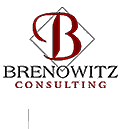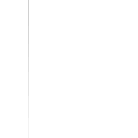


|
5 Rules Veteran OD Practitioners Know . . . And Sometimes Forget by Randi S. Brenowitz This article originally appeared in the Newsletter of the Bay Area OD Network, Winter, 2002 By this time of the year, many of us have already broken our New Year's Resolutions. This year, rather than trying to adhere to new resolutions, I decided to stick to some I already know…but sometimes forget. I offer them to you as a way to frame your work as you build a successful, productive, and meaningful practice in 2002. Rule #1 - The Person Who Signed The Contract/PO Is The Client - Although we certainly have a responsibility to the whole system/company and to our own professional integrity, we must remember that meeting the needs of the person who actually hired us is a key priority. If our client is doing something that goes against the values or vision of the organization, it is our role to help him or her see that and to create options so that both the client and the organization get the results they need. However, we must maintain our commitment to the client and the confidentiality of any discussions we have had with him or her. This rule gets even murkier when the person who hired us is an internal HR or OD professional who is working as a "broker" for the client organization. In that case, roles need to be negotiated, but in the end, the client is that HR/OD person and our accountability is to him or her. Rule #2 - The Latest "In" Intervention May Not Be What The Client Needs - After spending the last 20+ years in the OD profession, I get a little bored with some of the "old" interventions. I am eager to use the new ones that I heard about at the last ODN Conference or in the last book I read. The new methods have generally come from good research and anecdotal evidence, and they reflect a modern understanding of the current business environment. For those reasons, they are frequently the right intervention for a given situation. On the other hand, I must constantly ask myself if this is truly the case, or if I am using the new intervention simply because I want to play with a new toy. Sometimes, the old standard interventions are best suited to the client's needs even if I'd rather "play" with something new. Rule #3 - The Client Is Interested In Solutions…Not Interventions - This may seem unnecessary if we follow Rules #1 and #2. It's one of those things we may forget, however, when we create our marketing message and go on sales calls. We can get caught up in the "sales" mentality and try to sell an intervention rather than work with the client to determine the best course of action. This becomes even more problematic when the client calls and asks for a specific intervention: "We need you to do a Meyers-Briggs session with us." Or "We need to run a Search Conference. Do you do that?" In those cases, we must gently ask questions so that we (and the client) gain a better understanding of the client's needs and we can recommend the appropriate intervention. Rule #4 - HR Is Our Friend - This rule is dear to my heart, as I spent the early years of my career as an HR professional. Although we, like every profession, have a variety of specialties, our clients see us all as "the people people." Many of us are in the business of consulting with our clients to help them build collaborative partnerships. When we fight with our HR colleagues, it calls our competence into question. If we are truly committed to Rule #1, we will partner with the HR people to ensure that all of the client's organizational needs are met. Rule #5 - You Are Who You Are - In our attempts to follow the above rules, we must never forget our own values and boundaries. Although we should always be open to learning and growth opportunities, we must also remain true to our own standards and integrity. This may mean that a particular client may dislike your "style" and not want to work with you, or it may mean walking away from work you know is not suited to you. In these lean economic times, this may be the hardest rule of all to follow. In my experience, when I follow these rules I tend to do my best work. When I forget them, the work is harder and I enjoy it less.
Randi Brenowitz is an Organization Development Consultant who is committed to improving corporate productivity through the development of high-performance, team-based, collaborative organizations. Having worked both as an internal and an external consultant, she brings a unique blend of skills--the experience, knowledge, instincts, and political savvy of the successful insider, and the objectivity, neutrality, and balance of the perceptive outsider. You can get more sage advice (and other information) by calling Randi at 650-843-1611, emailing randi@brenowitzconsulting.com, or going to www.brenowitzconsulting.com.
|
||||||||
|
||||||||